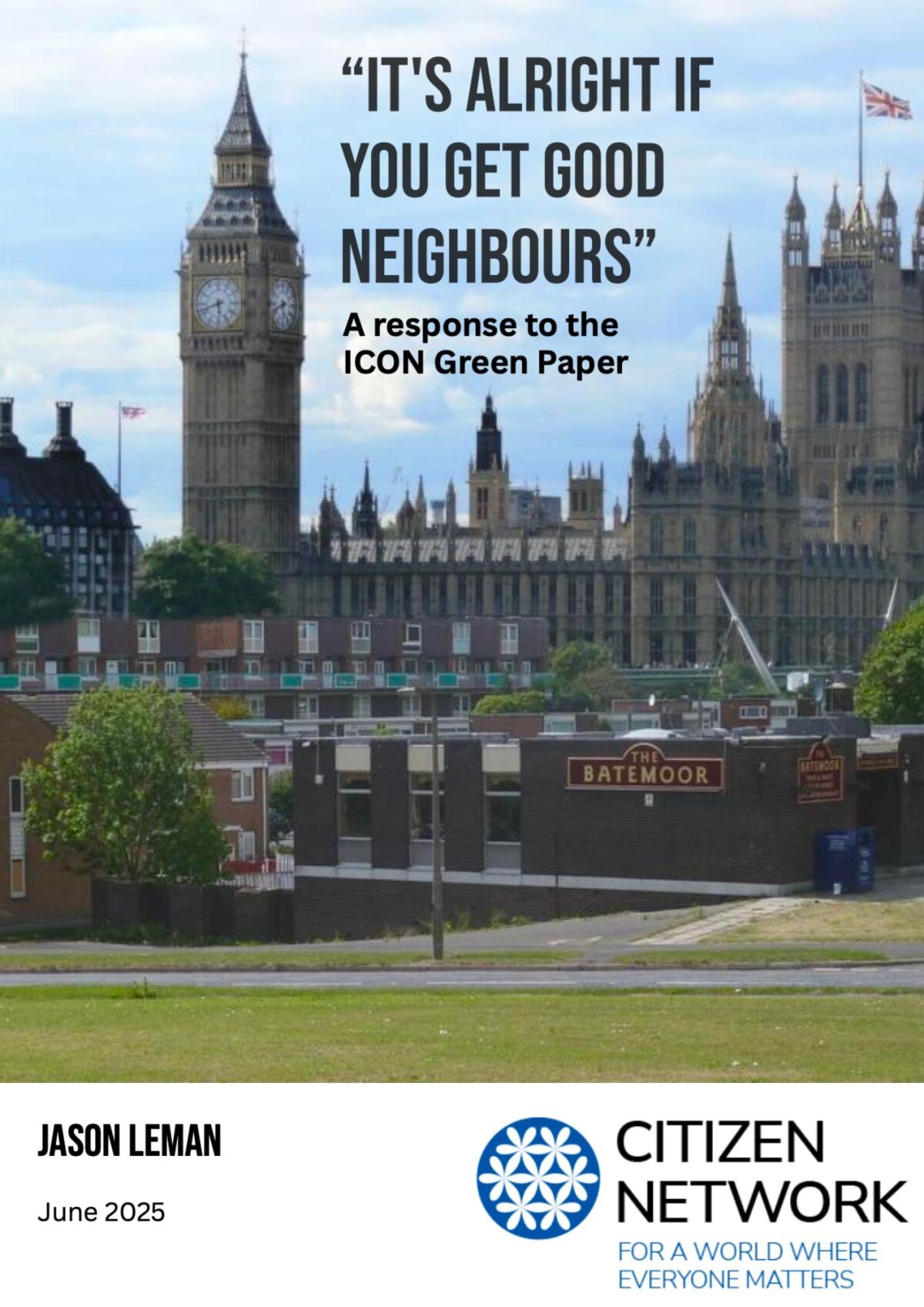A response to the Independent Commission on Neighbourhoods (ICON) Green Paper.
Author: Jason Leman
The Independent Commission on Neighbourhoods (ICON) is a small group set up in 2024 by the national lottery funded charity Local Trust. ICON aims to: “examine the role of neighbourhoods in people’s lives… exploring the case for neighbourhood focused regeneration as a contribution to achieving wider social and economic objectives.”
As part of this, ICON has published a Green Paper setting out possible plans for putting money into neighbourhoods. The ICON Green Paper gathers together a lot of evidence and sets out possible ways that a big programme of investment in neighbourhoods could work. The Green Paper raises as many questions as it seeks to answer; this paper It's Alright If You Get Good Neighbours is a response to those questions and some wider issues raised.
Every neighbourhood has strengths. To build on these strengths for the long-term means giving the lead to neighbourhoods and allowing time. Local authorities will be key partners, facilitating conversations and reshaping local public services so they are ready to work with neighbourhoods. Over time a neighbourhood will gain the ability to act independently and confidently. Residents talk about good neighbours as those who are respectful, who care about the area, who go out of their way to be helpful. Bad neighbours are nosy, noisy, and just think about what they want. To enable neighbourhood renewal, national, regional, and local government must be good neighbours.
A consistent national process can give fair priority to neighbourhoods where there is the greatest opportunity for change. Local and strategic authority resources could also support community-led renewal. The process needs to reflect neighbourhoods that residents actually identify with and recognise neighbourhoods are fuzzy concepts, containing as many different experiences as there are people. Change should grow organically, messily, through making connections and joining up existing resources, then gradually supporting new organisations and capacities to develop. The process should include cross-neighbourhood work and organisations. Over time, the neighbourhood would be enabled to advocate and act for itself, with place-based budgets and powers in the service of making places and relationships for flourishing lives.
Evidence can never give a full picture of reality but can reflect some of its complexity. Different kinds of data and rich conversations need to be used in the shaping and evaluation of activities. Neighbourhoods need to be supported not just to produce evidence but also to gather evidence and use it to develop and argue for their needs. Finally, as much as national, regional and local government need to learn by going to neighbourhoods, so neighbourhoods need to be invited into the processes of government.
Read and download the free pdf in your browser, link below.

The publisher is Citizen Network. It's Alright If You Get Good Neighbours © Jason Leman 2025.
community, local government, Neighbourhood Democracy, England, Paper